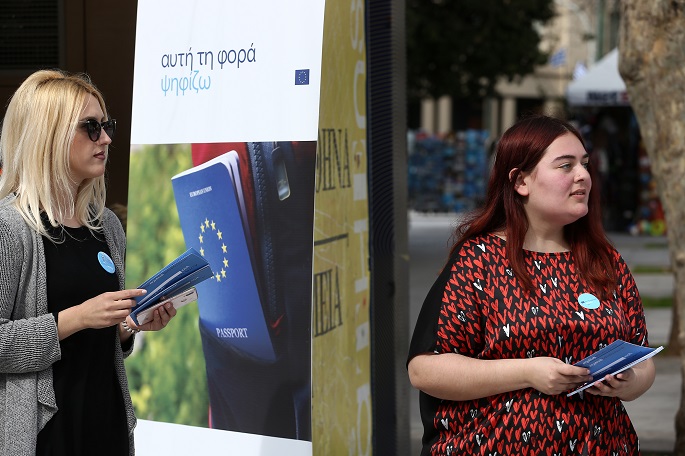EP elections could result in "political stalemate": study
Published : 26 Apr 2019, 23:48
This May's European Parliament (EP) elections could result in a "political stalemate," according to a study published by the German Bertelsmann Foundation on Friday.
"Deficits of representation activate and cause populism," according to the study, which said that European voters who felt themselves badly represented were "more likely to think and vote in a more populist way" in the upcoming EP elections.
The study found, however, that it would be more difficult to "form new majorities in the new European Parliament," as populist-leaning voters were more divided on factual issues than voters of the established parties.
"New lines of conflict and a stronger polarization of political disputes" were more apparent in the runup to the European elections than in previous such elections, the study showed.
The Bertelsmann researchers found that two-thirds of all Europeans surveyed were planning to participate in the European elections in May.
In Germany, 73 percent of all eligible voters expressed their intention to vote next month.
Turnout among German voters for the previous European elections in 2014 was 48.1 percent.
The majority of Europeans could be guided in their election decisions by their rejection of certain political parties -- known as "negative party identity."
The Bertelsmann researchers found that around 49 percent of European voters had a "negative party identity" in that they completely rejected one or even several political parties.
On average, only about 6.3 percent of Europeans identified positively with a political party.
"Many citizens no longer choose a party but vote against those parties that they most strongly oppose," said Robert Vehrkamp from the Bertelsmann Foundation and co-author of the study.
The study found an "almost identical" level of positive party identities of around 6 percent for the traditional party groups of the established political spectrum -- the Christian Democratic and conservative parties at the one end and social democratic and socialist parties at the other.
In contrast, right-wing populist and right-wing extremist parties attracted "the highest proportion of voters with a positive party identity" at 10.3 percent.
At the same time, left-wing and right-wing extremist and populist parties had a particularly high level of negative party identity at 52.8 and 52.2 percent, respectively.
In other words, "these party groupings have not only a solid base of voters, but also a large number of sharp critics," the study found.
"The populist parties succeeded in creating a stable voter base in a relatively short period of time. But their simultaneously high rejection rates also show how dangerous it would be for other parties to imitate the populist parties," said Vehrkamp.
The Bertelsmann study was based on interviews with 23,725 eligible voters in 12 European Union (EU) member states conducted in January 2019.
According to a recent YouGov survey, 23 percent of Germans viewed the European elections as less important than the elections for the German parliament, federal state parliament and local elections.
Forty-five percent of Germans surveyed "did not know any of the nine top candidates of the parties represented in the Bundestag," YouGov found.


